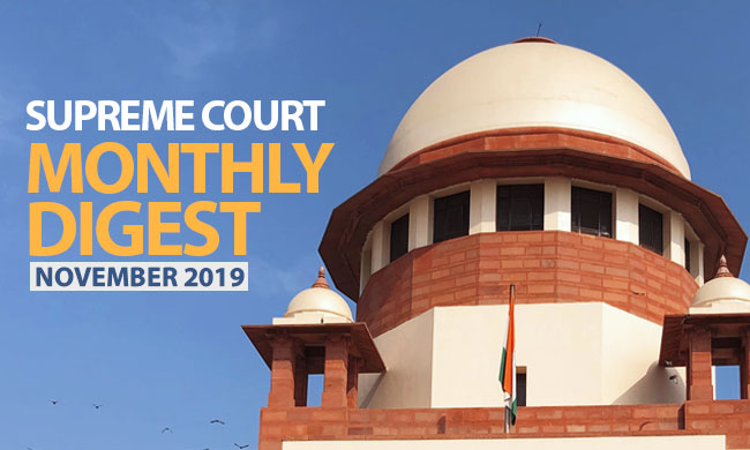Next Story
21 Dec 2019 12:00 PM IST
SC Keeps Sabarimala Review Pending Till Larger Bench Decides Issues Of Essential Religious Practices Kantaru Rajeevaru V. Indian Young Lawyers Association The Supreme Court by 3 :2 majority, decided to keep the review petitions in Sabarimala matter pending until a larger bench determines questions related to essential religious practices. The majority of CJI Ranjan Gogoi,...

